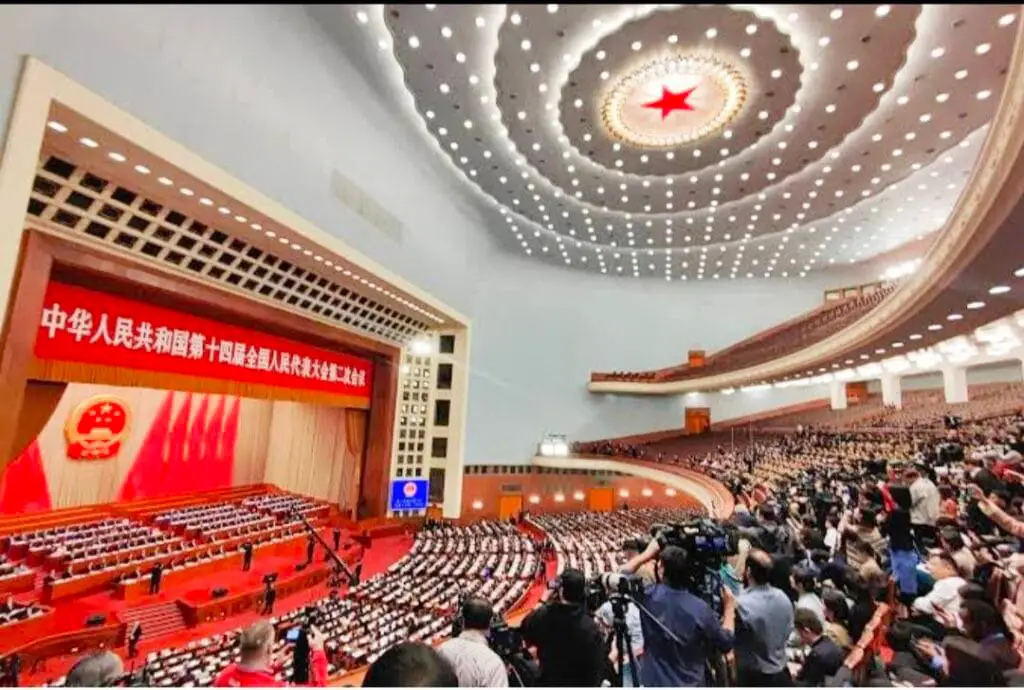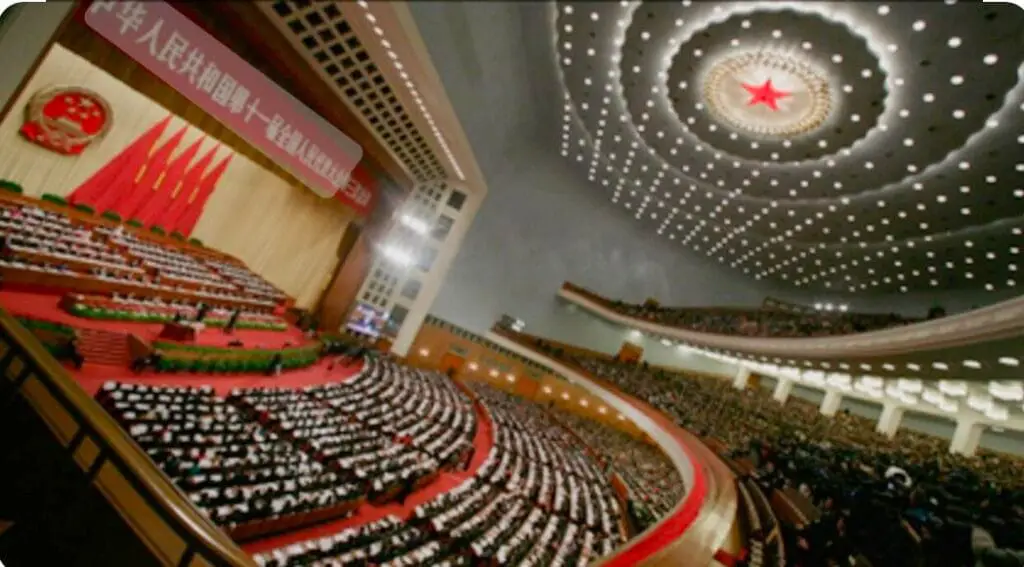
The Standing Committee of the National People’s Congress (NPC) is a key organ within the People’s Republic of China’s political system. As a permanent body of the NPC, it plays a crucial role in legislative, supervisory, and administrative functions, particularly when the full NPC is not in session. Here’s an overview of the composition and functions of the NPC Standing Committee:
Composition of the NPC Standing Committee
The Standing Committee is composed of senior members of the NPC, and its structure includes the following key elements:
- Chairperson:
- The Chairperson is the highest-ranking official in the Standing Committee and presides over its sessions and activities. The Chairperson is elected by the NPC and serves for a term that coincides with the term of the NPC (five years). This individual plays a central role in guiding legislative discussions and agenda-setting.
- Vice Chairpersons:
- There are several Vice Chairpersons who assist the Chairperson in their duties. The Vice Chairpersons are also elected by the NPC and are usually senior figures within the Communist Party of China (CPC) or other important state institutions.
- Secretary-General:
- The Secretary-General of the NPC Standing Committee is responsible for overseeing the day-to-day administrative work and coordinating legislative activities. The Secretary-General manages logistics, communications, and organization within the committee.
- Members:
- The NPC Standing Committee consists of a certain number of members, generally around 150-175, who are elected by the full NPC. These members represent different sectors of Chinese society, including the Communist Party, workers, farmers, academics, and professionals. However, in practice, most members are senior party officials or individuals closely affiliated with the CPC.
- Committees:
- The Standing Committee has several specialized committees that focus on specific areas such as legislative affairs, economics, education, science, foreign relations, and national security. These committees provide expertise and recommendations on issues to be addressed by the full Standing Committee.
- Terms:
- The Standing Committee serves for a five-year term, aligned with the tenure of the NPC. However, its members typically serve multiple terms depending on their political status.

Functions of the NPC Standing Committee
The NPC Standing Committee performs several key functions, primarily legislative, supervisory, and interpretative in nature. Here are the main functions:
- Legislative Function:
- The Standing Committee has the authority to draft and enact laws when the full NPC is not in session. While the full NPC meets only once a year, the Standing Committee can meet regularly throughout the year to address urgent legislative matters.
- It also reviews draft laws submitted by various government bodies and members of the NPC, refining them and making final decisions about their passage.
- It is responsible for amending existing laws as necessary to keep them updated with changing policies, situations, and needs.
- Interpretation of Laws:
- The Standing Committee holds the power to interpret the Constitution and national laws. This is a critical function, as it provides clarity on legal provisions and ensures consistent legal interpretation across the country.
- It also has the authority to resolve discrepancies in legal interpretations between different regions, especially in cases where local laws may conflict with national laws.
- Supervisory Role:
- The Standing Committee exercises supervisory authority over the State Council (the executive branch), the Supreme People’s Court, and the Supreme People’s Procuratorate. It ensures that these bodies are operating in accordance with the laws and the Constitution.
- It reviews the work reports submitted by these government bodies, ensuring accountability in the implementation of policies and laws.
- Appointment and Removal of Officials:
- The Standing Committee can appoint or remove officials in key state positions, including members of the State Council, judges of the Supreme People’s Court, and procurators in the Supreme People’s Procuratorate.
- It also has the power to appoint acting Presidents and other temporary leaders if necessary, ensuring the continuity of governance in times of transition or crisis.
- Oversight of National Defense and Foreign Affairs:
- The Standing Committee plays a role in matters related to national defense and foreign relations. It has the authority to ratify or annul treaties and agreements with foreign countries, and it approves decisions related to war and peace.
- It also reviews national defense budgets and policies, although the military remains largely under the control of the Communist Party.
- Constitutional Amendments:
- While only the full NPC can approve amendments to the Constitution, the Standing Committee often initiates discussions or drafts proposals for constitutional revisions. These proposals are then presented to the full NPC for final approval.
- Interim Legislation:
- During the periods when the NPC is not in session, the Standing Committee can adopt provisional laws and regulations to address urgent issues. These laws can later be ratified by the full NPC in the next annual session.
- Special Administrative Regions (SARs):
- The Standing Committee also has authority over the legal systems of China’s Special Administrative Regions (SARs), such as Hong Kong and Macao. It interprets laws related to the Basic Laws of these regions and ensures that national sovereignty is respected while allowing some degree of autonomy.
Importance of the Standing Committee
The Standing Committee is one of the most powerful institutions in China’s political system. It serves as the day-to-day governing body for legislative affairs and plays a crucial role in ensuring the continuity of government between full NPC sessions. Because the NPC itself only meets once a year, the Standing Committee effectively acts as the most active legislative and supervisory authority in the country for the majority of the year.
Moreover, as it has the power to interpret the Constitution and laws, the NPC Standing Committee plays a key role in shaping China’s legal and political landscape. The body also reflects the close relationship between the Chinese Communist Party and the state, as the leadership of the CPC often holds key positions in the Standing Committee, ensuring the party’s policies and priorities are enacted.
Conclusion
The Standing Committee of the National People’s Congress is a powerful and influential institution within China’s political framework. With a combination of legislative, supervisory, and administrative functions, it plays a central or vital role in an ensuring the implementation of laws, interpreting the Constitution, and overseeing the government’s activities. Through its work, the Standing Committee maintains continuity in governance and ensures the execution of the Communist Party’s policy directives across China’s legal and political systems.
